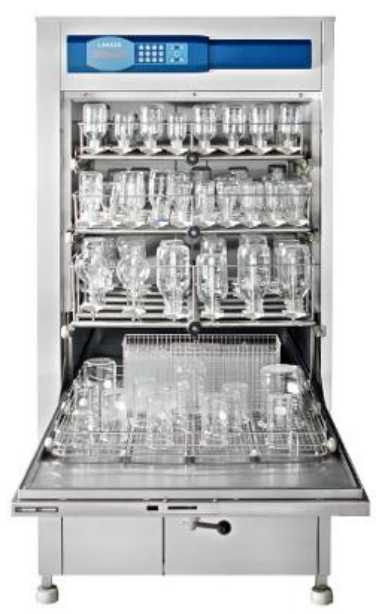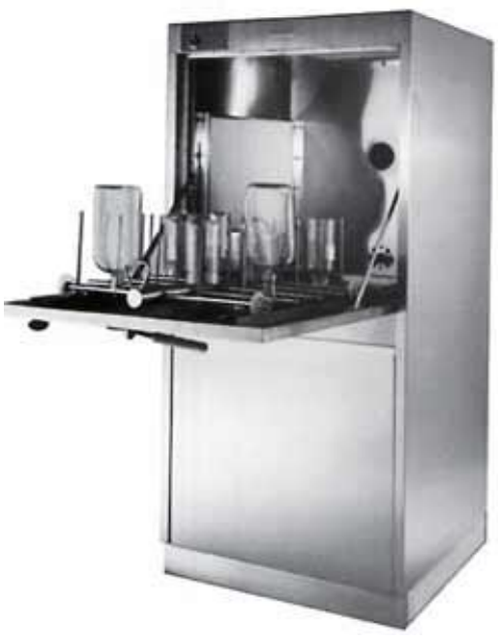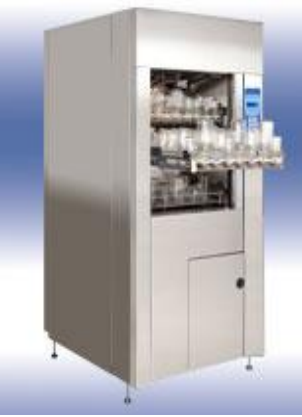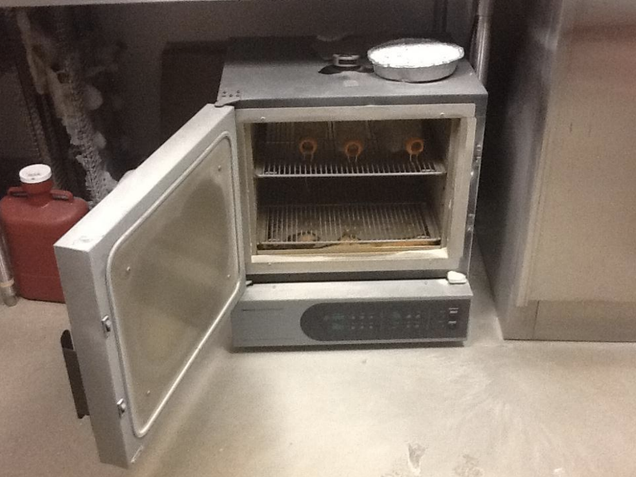Lab Equipment Dryer/Oven/Washer Safety Guidelines
Boston University Environmental Health & Safety
Lab Equipment Dryer/Oven/Washer Safety Guidelines
Laboratory dryers, ovens and washers are primarily used for the washing and drying of glassware and plastic and for removing water or other solvents from chemical samples. They can pose fire and health hazards to the user and the area around it.
- Fire Hazard- Melting plastic can cause fires
- Health Hazard- volatilized substances pose acute or chronic respiratory hazards
- Burn Hazard – Hot surfaces and material



The following of these general guidelines will help minimize the potential risk of injury when using a lab equipment dryer, oven or washer. Always consult your owner’s manual
Potential Hazards/ Biohazards:
- Fire Hazard – Putting plastics that are not made to withstand high temperatures into the machine can potentially cause them to melt and ignite. This can set fire to the equipment itself and the room
- Health Hazard – rinsing items with volatile substances, or not rinsing away residual volatile substances in the equipment before putting them in the dryer will cause the substance to become airborne. Due to the machine not having a way to contain the gas, it can escape and be inhaled by the operator and those around the machine
- Burn Hazard – Be cautious of hot surfaces when loading and unloading items. Recently dried contents inside will be extremely hot. Make sure to keep face, body and hands away from escaping heat and steam when opening the door of the machine
Steps with Fire Hazard – When loading items, make sure the material is safe to use at high temperatures. If you are not sure, research the item or contact the manufacturer for information.
Steps with Health Hazard – Lab equipment can have residual chemicals left in them if they have not been properly cleaned. When these chemicals are volatilized, they can be inhaled by the user or those around them. Make sure to rinse equipment with distilled water to remove any residual chemicals before placing them into the machine.
Appropriate PPE:Lab coat, adequate eye/face protection and heat resistant gloves are required. Rubber apron, rubber sleeve protectors and face shields are encouraged
Helpful hints:
- Be aware of what you are doing and follow proper safety procedures
- Do not overload the machine
- Do not exceed recommended operating temperatures
- Do not use mercury thermometers to monitor the temperature inside the oven as breakage can cause accidental spill and exposure to mercury
- Do not plug in equipment with an extension cord
- If you have a model with an exposed heating element on the bottom, do not place items on the shelf that can potentially fall onto the heating element
- Make sure the equipment is properly maintained. Report any faults to your supervisor immediately

Training: Ensure that new personnel are initially trained on the proper and safe operation of the equipment
The Manufacturers’ Manual:Read and understand the proper operating and safety procedures outlined in the owner’s manual
All Incidents should be reported to your supervisor immediately and must be reported to Research Occupational Health Program (ROHP) at 617-414-7647. For medical emergencies, contact Public Safety on the Medical Campus at (617)414-4444 or BU Police on the Charles River Campus at (617) 353-2121.